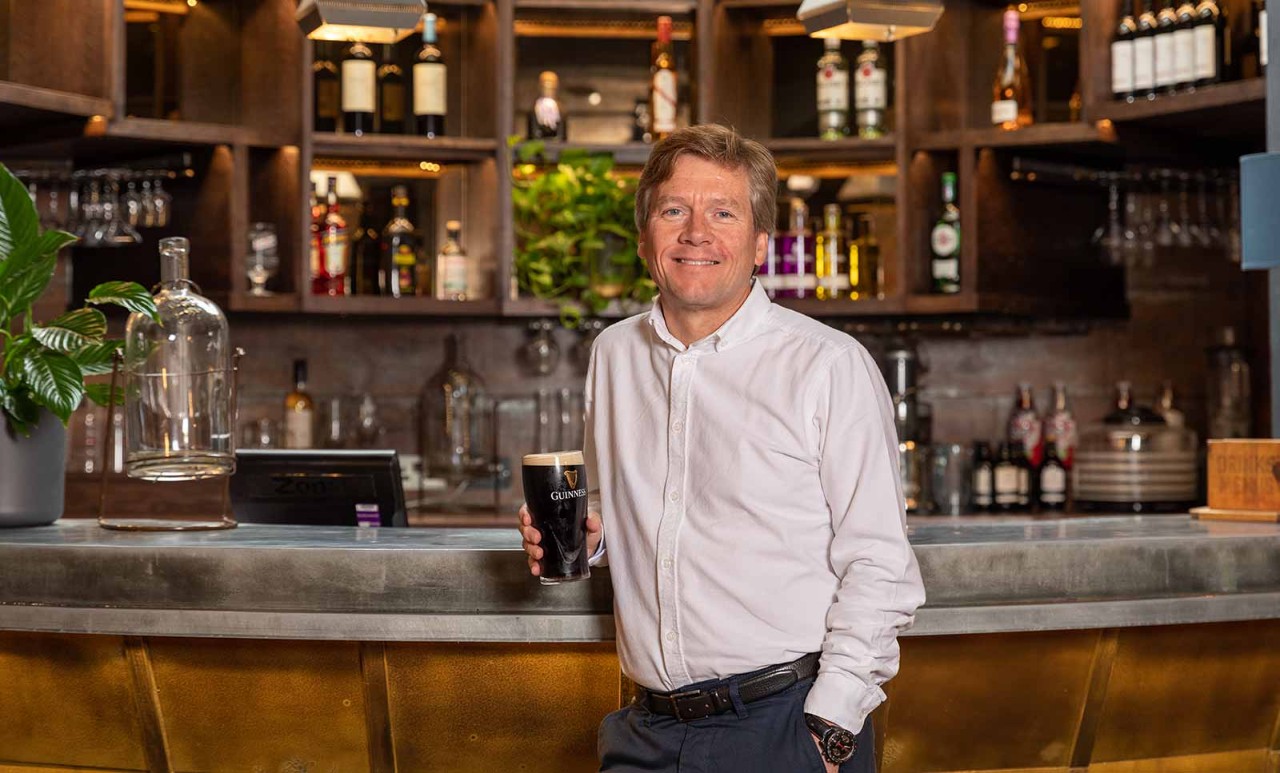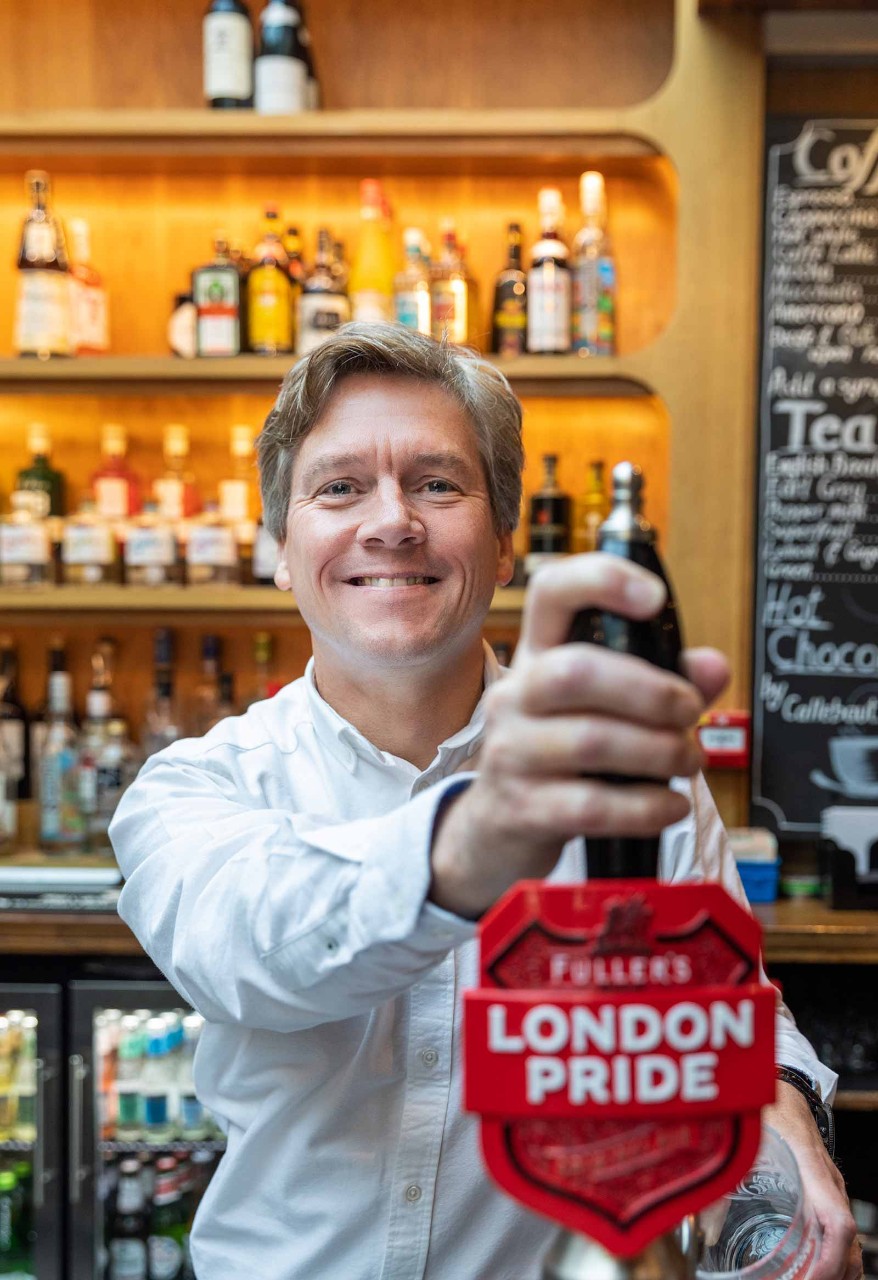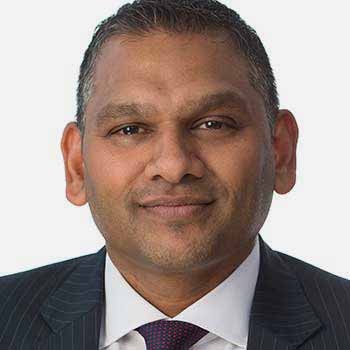
If you live in the English home counties or Midlands, the chances are you may have enjoyed a drink or meal in an Oakman Inns pub. Launched in 2007, the group’s 24 venues – many in Grade II-listed buildings – include Banyers House in Royston, The Globe in Warwick and the award-winning Beech House in St Albans.
For Dermot King FCCA, his elevation from COO to CEO last July, in the midst of the Covid-19 epidemic, couldn’t have come at a more challenging time for the company – and the entire hospitality industry. Lockdown restrictions meant that for much of the year pubs remained either closed or working under strict social distancing rules, affecting everything from opening hours to serving protocols.
Team spirit
‘Covid has been a huge spanner in the works,’ King admits. ‘I cannot begin to describe the disruption it has caused – to businesses and people, but also to balance sheets. It has thrown up probably the single biggest challenge that anybody in hospitality has faced in their professional careers.’
‘Covid has thrown up probably the single biggest challenge that anybody in hospitality has faced in their professional careers’
About Oakman Inns
2007
Oakman Inns founded by Peter Borg-Neal
28
Pubs across the home counties and Midlands, with six more in the pipeline
1,000+
Number of employees
£31.5m
Revenues for the financial year ending 30 June 2020
7
Awards from The Publican
Oakman developed a three-phase strategy in response to the crisis when it first hit in March 2020: pull through, pull together and pull ahead. Pulling through was about getting through the first national lockdown; the main focus was keeping the team together because, as King says, ‘it was very easy for staff who didn’t have work to find other things to do’.
As well as retaining its people through the use of the government’s furlough scheme, Oakman needed to maintain the support of its banks, investors, landlords and suppliers. ‘We could only do that through the relationships our teams had built up over the years,’ he explains.
After surviving the initial lockdown period, Oakman opened for four months over the summer and early autumn, during which time it enjoyed strong trading – the ‘pull together’ phase. It never managed to ‘pull ahead’, however, after a further lockdown happened in November, followed by tight restrictions that killed off the crucial Christmas trading period.
Now, nearly a year later, with yet another national lockdown in place, the business is effectively back in the ‘pull through’ phase again. ‘It’s unlikely we’ll be opening before the end of March,’ King says. ‘Asking any business to close for eight months out of 12 is an extraordinary challenge.’
While the government has provided help for businesses in general, as well as targeted support for the hospitability sector, King says that this has ‘drifted off’ as time has gone on. ‘We are surviving on very little on a day-to-day basis,’ he says.
Vaccination support offer
Nevertheless, King feels confident that the company’s investment in its outdoor areas and safety measures, such as glass screens between tables, will pay off once pubs are finally allowed to reopen again. In the meantime, King has offered to forego further government support in return for offering to house vaccination centres in the empty pubs – although it’s an offer the government is yet to take up.
Despite the difficulties, King believes that the hospitality industry can recover quickly from the crisis because people are fundamentally ‘social animals’ who enjoy meeting in pubs and restaurants. He is also optimistic about Oakman’s prospects for the second half of 2021. ‘I think once we’re allowed to reopen, we will repeat the strong performance we had throughout last summer,’ he says. ‘But the government needs to create an environment where businesses can rebuild themselves.’
Leisurely career
King’s career in hospitality did not get off to a glamorous start. As a young Irish auditor, newly arrived in England in the late 1980s, his first client job involved spending three weeks reconciling the rent ledger of a caravan park business – a ‘horrible task’.
As it turned out, King’s hard work opened doors with his client, Bourne Leisure, which asked him to take on a couple more projects. ‘Then, within 18 months, they asked me to come on permanently,’ he says.
‘Profit isn’t what we were doing; it is a result of what we were doing – and that is fundamental to my love of hospitality generally’

CV
2020
CEO, Oakman Inns
2019
COO, Oakman Inns
2010
Managing director, Butlin’s, Bourne Leisure, then managing director, Evergreen Finance, Bourne Leisure
1989
Various roles including head of finance, head of retail/food and beverage and head of operations, Haven Holidays, Bourne Leisure Group, Hemel Hempstead
1987
Audit team, Morison Stoneham, London
Initially working as a financial accountant, King held a wide range of financial and operational roles in the business, where he ended up staying for nearly 30 years.
‘I loved the industry and loved the people who worked in it,’ he explains. ‘In hospitality, the reason why you get up in the morning is to allow families to get closer together and to create memories they will cherish. Profit isn’t what we were doing; it was a result of what we were doing – and that was fundamental to my love of hospitality generally.’
Sea change
King’s most notable role at Bourne was his eight-year stint as managing director of Butlin’s, the iconic chain of seaside holiday camps. At the time he took over, Butlin’s – which had been an acquisition – was a shadow of its former self in its 1950s and 1960s heyday, before the advent of the package holiday.
He immediately set about reinventing the brand by going back to its roots as a seaside destination for family holidays. This reinvention was so successful that EBITDA shot up from £27m to £56m in just under eight years – through organic growth alone.
Bigger and better
By 2018, King was ready for a change – but one that ideally involved staying in the hospitality industry. An approach by Oakman’s founder, the entrepreneur Peter Borg-Neal, came along at just the right time. King was intrigued by Oakman’s business model, which involved ‘taking the best of a restaurant and the best of a pub’ and putting both into the same space. He agreed to join the business in 2019 as COO and succeeded Borg-Neal as CEO last July.
King had anticipated that running a pub group would be an interesting challenge, but he notes: ‘Actually it turned out to be an even bigger challenge than anything I had faced previously in my career.’
Between them, King and Borg-Neal developed a business model where King would improve the business organically (‘better Oakman’) while Borg-Neal would find additional sites (‘bigger Oakman’), with the aim of helping the business achieve the holy grail of sustainable profit and sustainable cash generation.
But just as the pair prepared to put their plan into action, a global pandemic broke out, devastating the hospitality industry.
Lessons learned
Decades have now passed since King spent those long evenings poring over the rent ledger. But he believes his financial background has been invaluable to him building a successful career in management.
His ACCA Qualification has also given him the confidence to express his opinion to people ‘who you would, at face value, assume might have better opinions’.
Ultimately, he believes that, through their work, finance professionals allow their colleagues to make a difference. ‘By far and away the biggest skill an accountant can bring to a team is being able to express a problem in a way that makes the solution easy for non-accountants to understand,’ he says.
‘Too many accountants get too tied up with clever modelling and buzzwords. If I’ve brought anything to support the teams that I’ve worked with, it’s being able to interpret data in a way that’s enabled them to make decisions and move on.’





